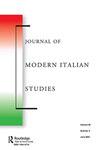Migrants, refugees, invaders: responses to the Riace Model’s inclusive citizenship project
IF 0.7
3区 历史学
Q1 HISTORY
引用次数: 0
Abstract
ABSTRACT In imagining a post-nationalistic and post-racialized future, the refugee hospitality and integration project implemented in Italy, known as the Modello Riace (Riace Model), sought to use state-funded, sustainable activities to encourage asylum seekers to mix with locals and settle in the economically depressed and depopulated areas of southern Italy. The project navigated legal frameworks and defied rampant ethno-nationalism to integrate refugees during the Mediterranean migrant crisis and to mitigate the associated climate of hostility towards them. The experiment prompted a political backlash and stirred paranoia about an imagined ethnic replacement of Italians. This paper introduces the Riace Model’s humanitarian vision and its interaction with the social solidarity economic sector in Italy after the 2008 financial crisis. It analyses interviews with the then-mayor of Riace, Domenico Lucano, and their reception on social media, to examine notions of humanitarianism and citizenship in Italy. Highlighting the contrast between Riace’s imagined future and hostile views of refugees as invaders and criminals, the study demonstrates the conflict that arose at a time of economic austerity. The study also illustrates how public figures became proxies for opposing factions, discusses the Model’s legacy, and highlights the challenges facing future integration schemes.移民、难民、入侵者:对里亚斯模式包容性公民项目的回应
摘要在想象后民族主义和后种族化的未来时,意大利实施的难民接待和融合项目被称为Modello Riace(Riace模式),旨在利用国家资助的可持续活动,鼓励寻求庇护者与当地人混在一起,在意大利南部经济萧条、人口稀少的地区定居。该项目遵循法律框架,反抗猖獗的民族主义,在地中海移民危机期间融合难民,缓解对他们的敌意。这项实验引发了政治上的强烈反对,并引发了人们对想象中的意大利人的种族替代的偏执。本文介绍了里亚斯模型的人道主义愿景及其在2008年金融危机后与意大利社会团结经济部门的互动。它分析了对时任里亚斯市长多梅尼科·卢卡诺的采访,以及他们在社交媒体上的受欢迎程度,以考察意大利的人道主义和公民意识。该研究强调了里亚斯想象的未来与将难民视为入侵者和罪犯的敌对观点之间的对比,展示了经济紧缩时期出现的冲突。该研究还说明了公众人物如何成为对立派系的代理人,讨论了该模式的遗产,并强调了未来一体化计划面临的挑战。
本文章由计算机程序翻译,如有差异,请以英文原文为准。
求助全文
约1分钟内获得全文
求助全文
来源期刊

Journal of Modern Italian Studies
Multiple-
CiteScore
1.00
自引率
25.00%
发文量
66
期刊介绍:
The Journal of Modern Italian Studies (JMIS) is the leading English language forum for debate and discussion on modern Italy. This peer-reviewed journal publishes five issues a year, each containing scholarly articles, book reviews and review essays relating to the political, economic, cultural, and social history of modern Italy from 1700 to the present. Many issues are thematically organized and the JMIS is especially committed to promoting the study of modern and contemporary Italy in international and comparative contexts. As well as specialists and researchers, the JMIS addresses teachers, educators and all those with an interest in contemporary Italy and its history.
 求助内容:
求助内容: 应助结果提醒方式:
应助结果提醒方式:


